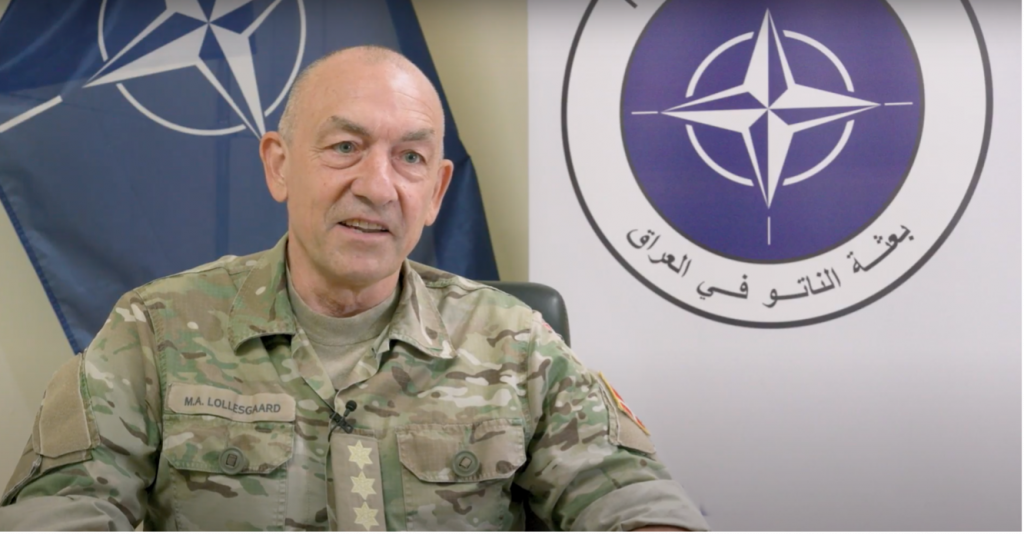In December 2021, four years after the territorial defeat of Daesh, the Global Coalition transitioned from a combat mission to an advisory one. In its new role, the Coalition will advise, assist and enable the Iraqi Security Forces (ISF), including the Peshmerga, to continue their mission to rid the country of the remnants of Daesh.
Throughout the campaign, Coalition forces have provided vital air support, intelligence and training, while the ISF “fought on the battlefield and made the sacrifices,” said Major General Tahseen Al-Khafaji, Spokesperson of the ISF’s Joint Operations Command (JOC).
Since the ISF liberated Iraqi territory from Daesh in 2017, Coalition forces have trained, equipped and provided operational support to the ISF and Peshmerga, helping them grow in confidence and develop new operational capabilities. Following the Government of Iraq’s invitation to remain in the country to deliver the Coalition’s new advisory mission, all former Coalition military bases in Iraq were handed back to the ISF. Now, the ISF are responsible for the protection of Coalition personnel.
Operationally, the Joint Operational Command Centre-Iraq (JOC-I) is the entity that commands and controls all Iraqi forces across the country. The same location also acts as the headquarters of Combined Joint Task Force – Operation Inherent Resolve (CJTF-OIR), which is the operational name given by the Coalition to its mission in Iraq. The two headquarters work collaboratively to continue to take the fight to Daesh.

Two organisations enable the Coalition to deliver its new advise and assist mission: the Military Advisory Group (MAG) and the Special Operations Advisory Group (SOAG). Both groups advise at the operational level and tactically support the ISF when and where requested by the JOC-I.
The NATO Mission Iraq (NMI) is a separate advisory operation that focuses on training and developing long term Iraqi capabilities. Working in close cooperation with both the Coalition and the ISF, the NATO mission has recently expanded the scope and size of its training activities at the request of the Iraqi government. The NATO mission comprises several hundred military and security experts from all 30 NATO members, plus three additional non-NATO partner countries: Australia, Finland and Sweden. To carry out its mission, NATO works directly with the Iraqi Ministry of Defence to bolster Iraq’s military institutions and security forces so that ultimately Iraqi forces can prevent Daesh resurgence and defeat extremism on the battlefield unilaterally. NATO personnel are not deployed on combat operations alongside the ISF.
According to Lt Gen Michael Lollesgaard, the commander of the NATO mission, the ultimate aim of the NATO mission is to enable the ISF to transition successfully from its current operational footing to that more akin to a peacetime force, able to provide safety and security for the Iraqi people without the need to conduct constant warlike operations on its territory, but poised and equipped to strike hard and quickly should the need arise. “For many years, the Iraqi people have been at war and today they are entering a new era free from war.”

Thanks to the successful partnership between the ISF and its international partners in defeating Daesh on the battlefield, the newly elected Government of Iraq can now focus on rebuilding its institutions and, despite scattered Daesh cells carrying out occasional guerilla attacks, building a better future for Iraq’s future generations. As Major General Al-Khafaji notes, “Iraq now needs help in the areas of investment, education and health. We have resources and young bright minds to build on.”

